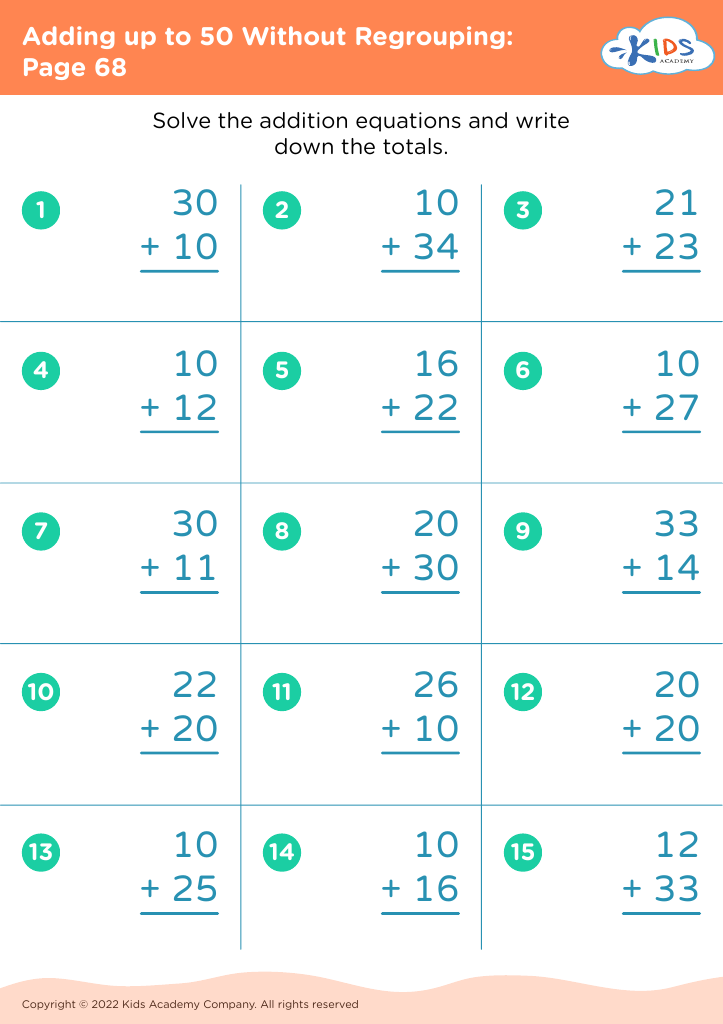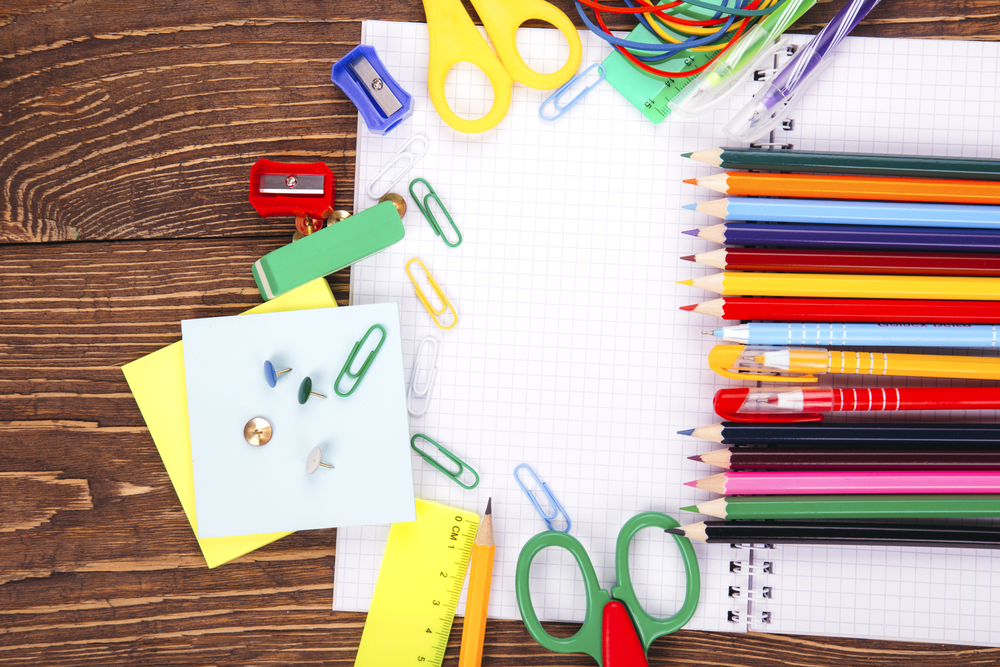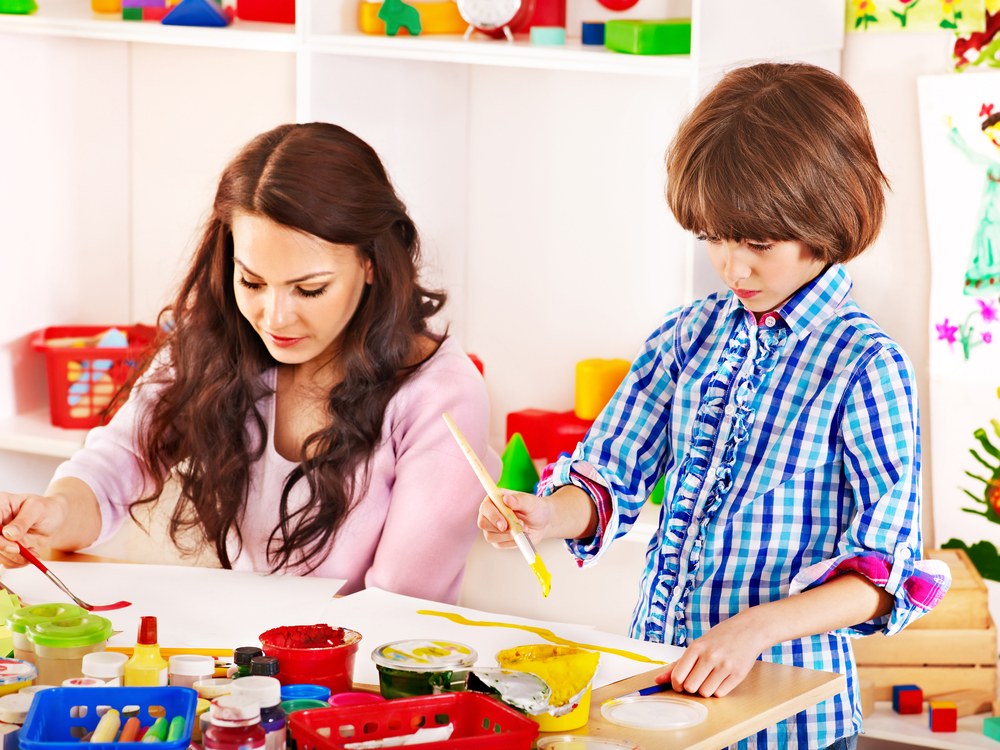Developing observation skills Worksheets for Ages 4-8
9 filtered results
-
From - To
Developing observation skills is fundamental for young learners aged 4-8, and our specialized worksheets from Kids Academy are designed to enhance those skills in a fun and engaging way! These printable worksheets encourage children to notice details, compare and contrast objects, and identify patterns, fostering critical thinking and attention to detail. Our age-appropriate activities not only support cognitive development but also keep kids motivated with interactive tasks and colorful illustrations. Download our carefully curated worksheets to help your child advance their observation abilities while enjoying the learning process. Begin your educational journey with Kids Academy today!


Sink or Float Printable
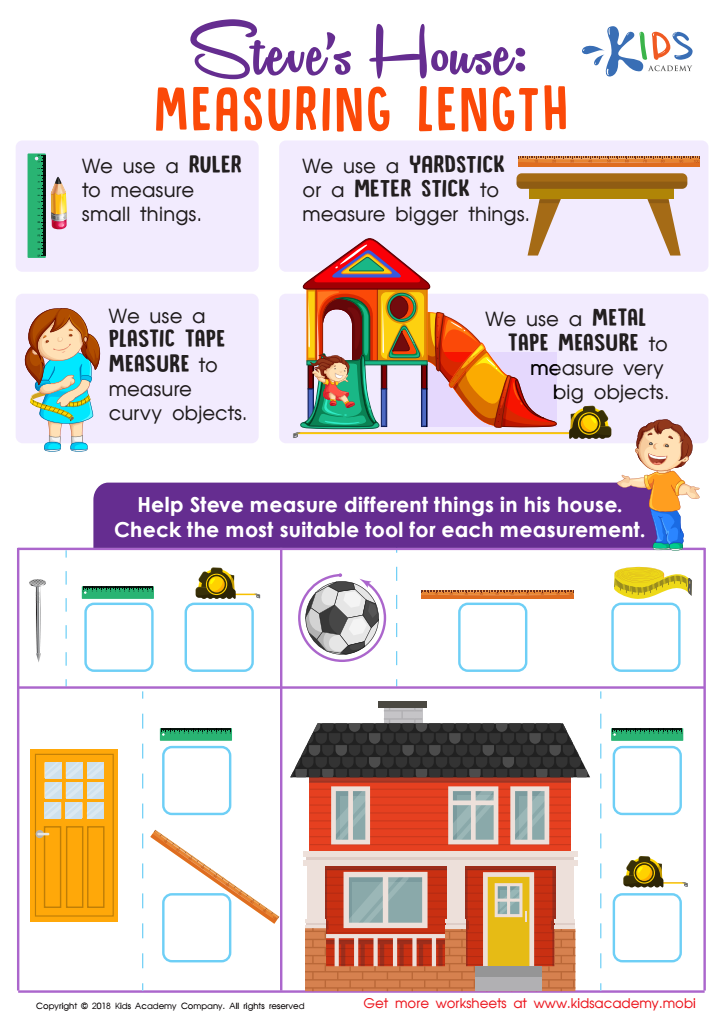

Steve's House: Measuring Length Worksheet
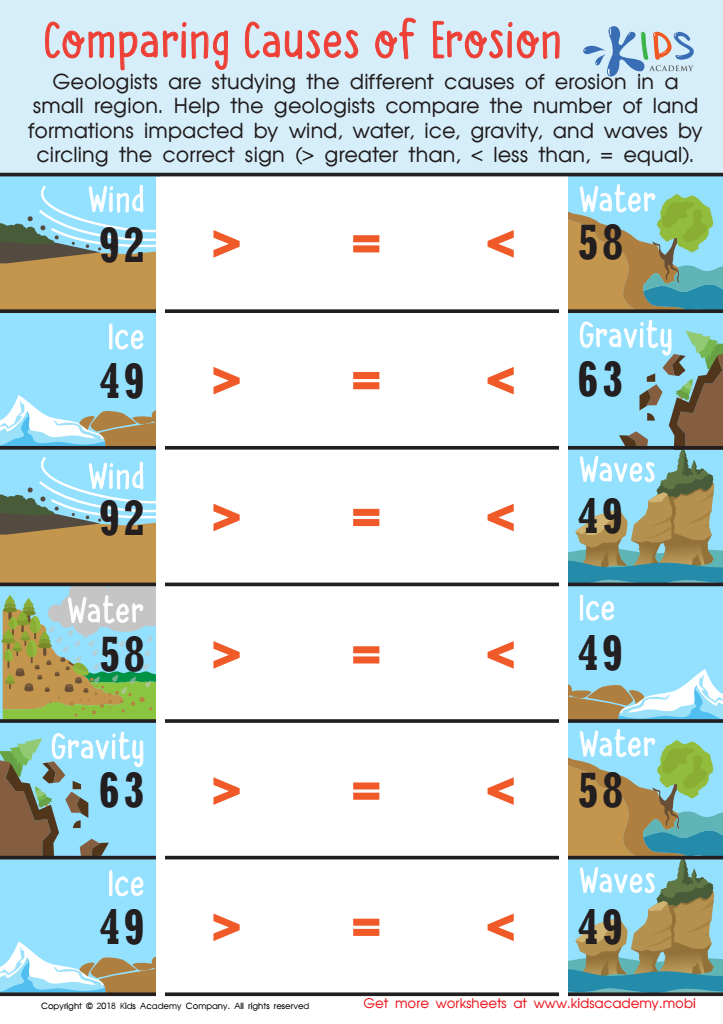

Comparing Causes of Erosion Worksheet
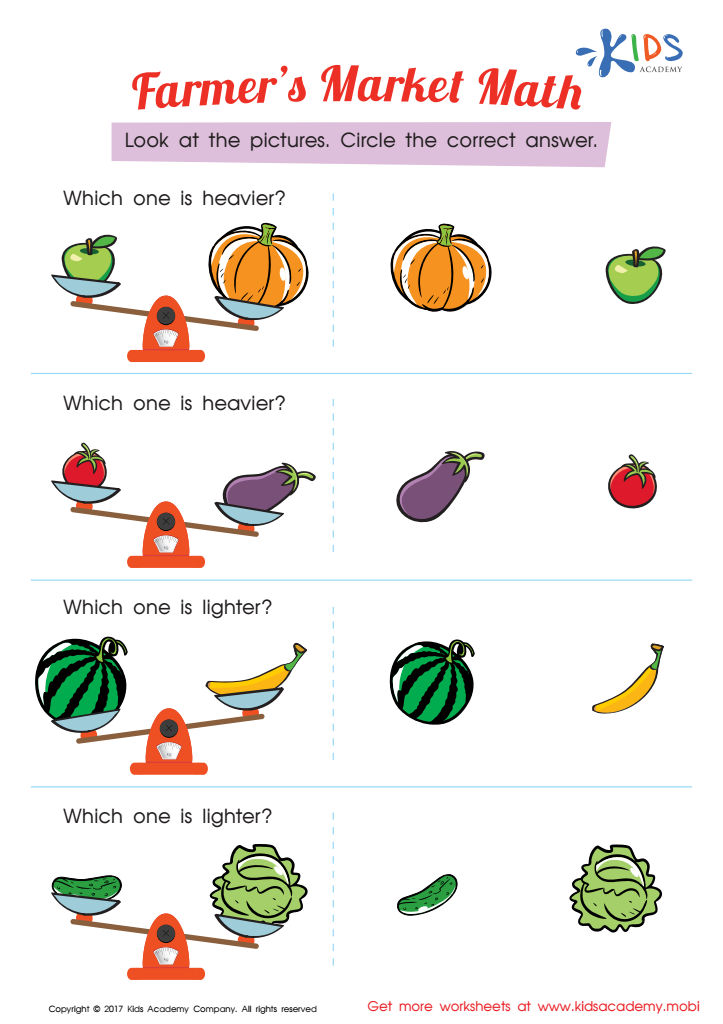

Which One Is Heavier Worksheet


Light and Sound: Assessment 2 Worksheet
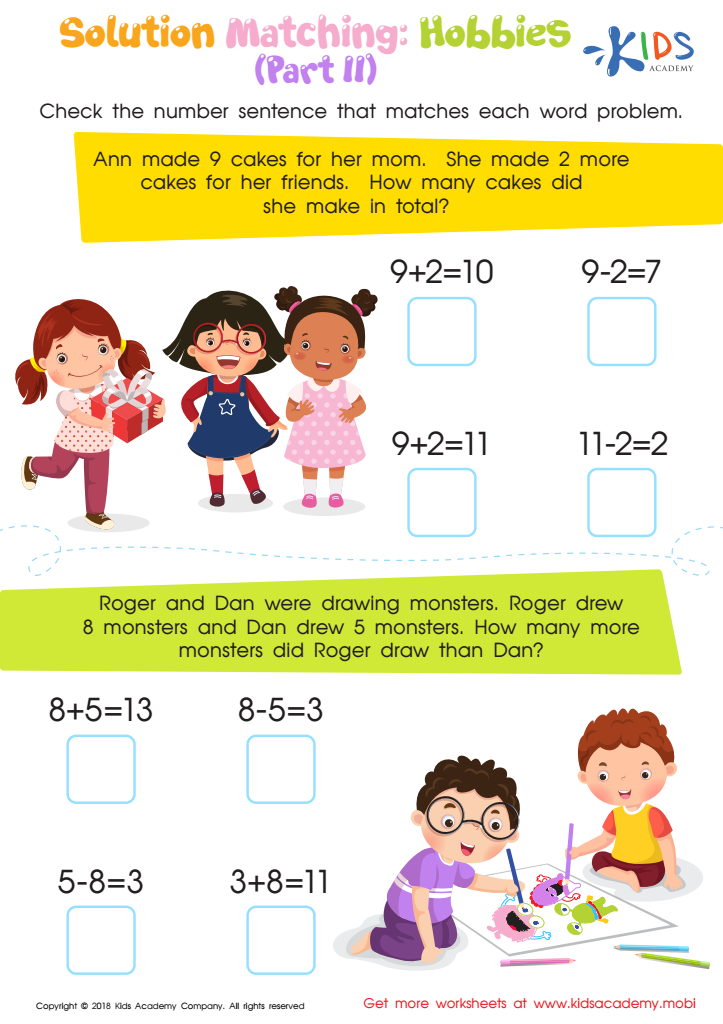

Solution Matching: Hobbies. Part 2 Worksheet
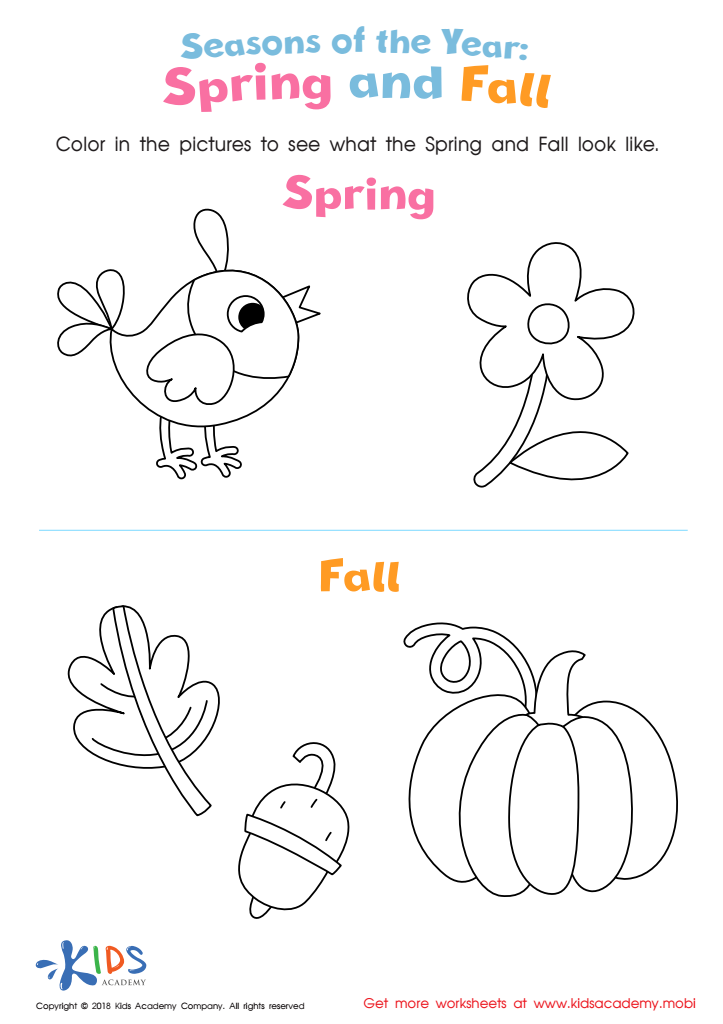

Spring and Fall Worksheet
Developing observation skills in children aged 4-8 is crucial for their cognitive, social, and academic growth. At this impressionable age, children's brains are highly adaptable and swiftly absorb new information. Observation skills enable kids to notice details, patterns, and changes in their environment, which fosters curiosity and ignites a love for learning.
For cognitive development, sharp observation skills enhance problem-solving abilities and critical thinking. When children keenly observe, they ask insightful questions and come up with creative solutions, laying a strong foundation for future educational pursuits. Socially, these skills help children understand nonverbal cues, empathize with others, and improve communication. Observing emotions and behaviors in peers enables them to interact more effectively, building stronger relationships.
In an academic context, strong observation skills can lead to better performance in subjects like science, where noticing details is key to experiments, or in reading, where paying attention to illustrations and textual clues enhances comprehension.
Finally, for parents and teachers, fostering these skills empowers children for lifelong learning and adaptability. Simple activities like nature walks, play, or interactive reading can significantly boost observational abilities. Prioritizing this aspect of development ensures that children are well-equipped to navigate their expanding world, making thoughtful and informed decisions as they grow.

 Assign to the classroom
Assign to the classroom

